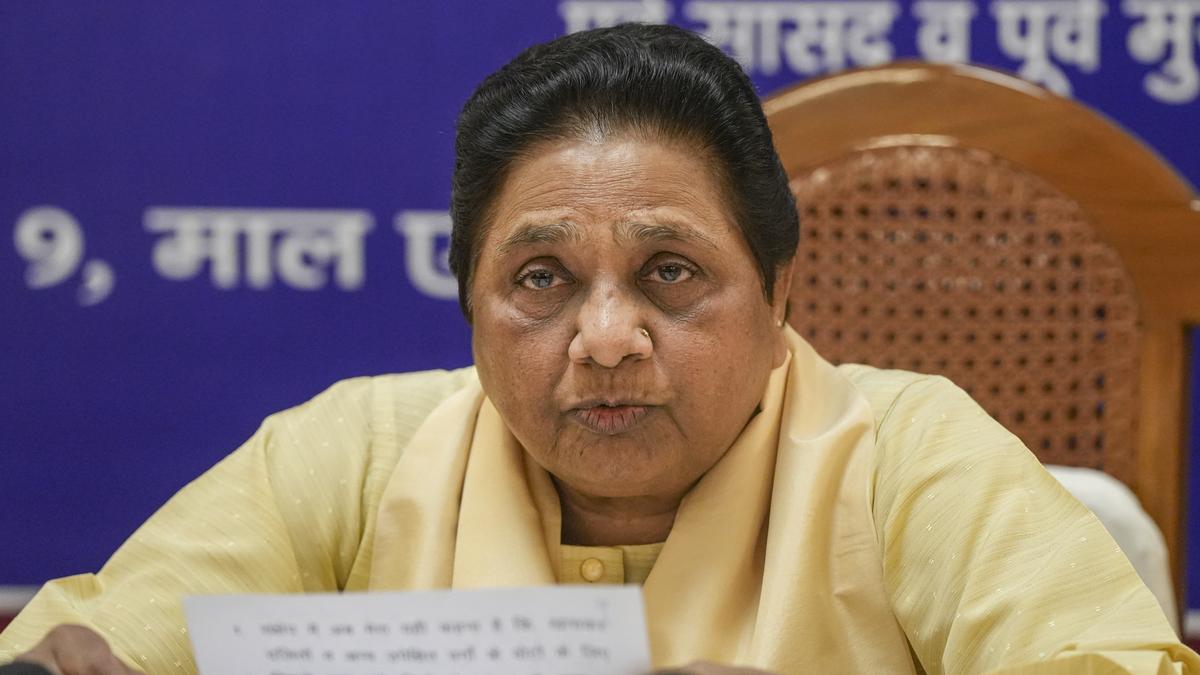 |
|
The recent political sparring between the Bharatiya Janata Party (BJP) and the Indian National Congress (INC) in the Indian Parliament has drawn sharp criticism from Bahujan Samaj Party (BSP) chief Mayawati. She unequivocally labeled the conflict as "cheap politics," driven by a pursuit of vote banks rather than genuine concern for the welfare of marginalized communities. Mayawati's statement directly addresses the ongoing controversy surrounding Union Home Minister Amit Shah's remarks on B.R. Ambedkar, a revered figure for Dalits and other oppressed sections of Indian society. The BSP leader argues that Shah's words have deeply wounded the sentiments of these communities and calls for a public apology. This incident highlights the deeply sensitive nature of caste politics in India and the significant political capital invested in appealing to Dalit voters. The ongoing debate serves as a reminder of the historical and ongoing challenges faced by marginalized communities in securing their rights and achieving social justice.
Mayawati's condemnation extends beyond the immediate clash in Parliament, encompassing a broader critique of both the BJP and the Congress. She accuses both parties of historical injustices and systemic oppression against Dalits and other marginalized groups, alleging that they have consistently disregarded the constitutional and legal rights of these communities. This accusation transcends the specific comments made by Amit Shah, painting a picture of a long-standing pattern of negligence and exploitation. The BSP leader's sharp criticism underscores the complexities of Indian politics, where accusations of casteism and vote-bank politics are frequently leveled across the political spectrum. The lack of meaningful progress on addressing the social and economic disparities faced by Dalits, according to Mayawati, further fuels her critique of both the ruling and opposition parties.
The use of symbolic gestures, such as waving the Constitution or wearing blue, is highlighted by Mayawati as a superficial attempt to garner support without genuine commitment to the cause. She argues that these actions are mere political posturing, devoid of genuine concern for the well-being of Dalits. This commentary touches upon the critical issue of performative allyship, where political parties utilize symbolic gestures to appeal to specific voter demographics without addressing the underlying systemic issues. The call for both the BJP and the Congress to cleanse themselves of casteism and narrow-mindedness is a direct challenge to the political establishment, demanding a fundamental shift in approach to address the long-standing concerns of marginalized communities. The political ramifications of this statement are substantial, potentially influencing Dalit voting patterns and shaping the discourse around caste politics in the lead-up to future elections.
Mayawati's statement serves as a powerful intervention in the ongoing political debate, forcing a critical examination of the roles played by both the BJP and the Congress in addressing the concerns of Dalits. Her condemnation of both sides transcends party lines, highlighting a shared responsibility for the persisting inequalities. The call for introspection and a commitment to genuine welfare, rather than superficial political maneuvering, emphasizes the need for substantive policy changes and a deeper commitment to social justice. The broader implication of Mayawati's statement is that the political rhetoric surrounding Dalit rights often falls short of meaningful action, prompting a call for more substantial efforts to address the systemic issues affecting the lives of marginalized communities in India. This debate also exposes the ongoing struggle for political representation and the continuing relevance of caste as a defining factor in Indian politics.
Source: BJP-Congress conflict in Parliament is cheap politics, says Mayawati
